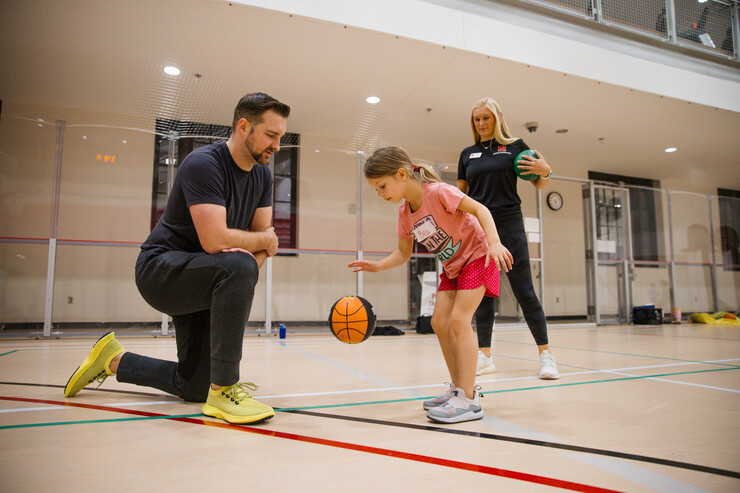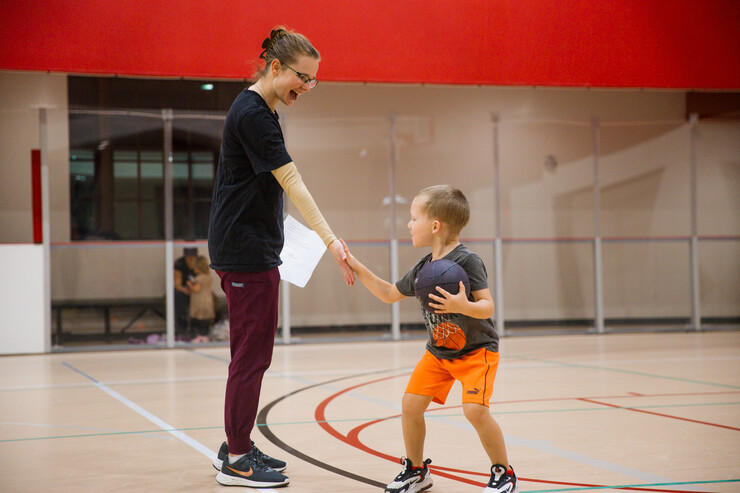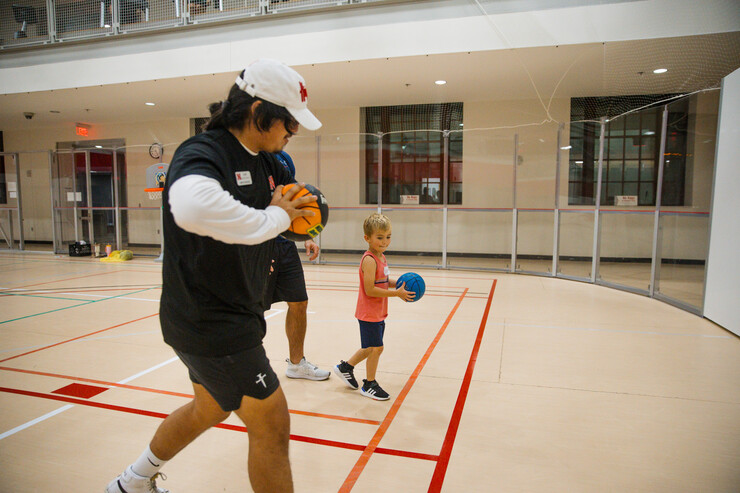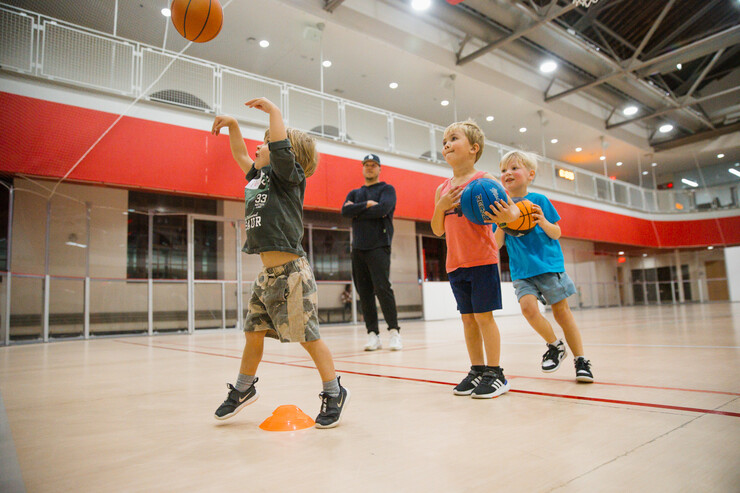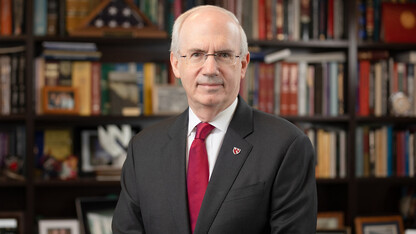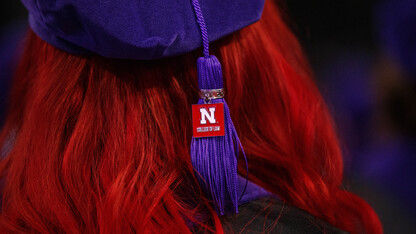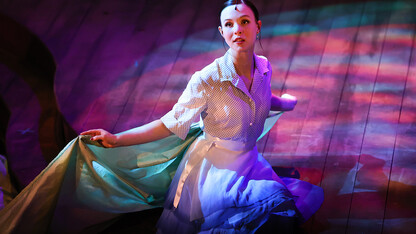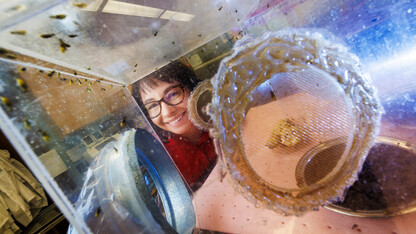· 5 min read
Itty Bitty Sports nets youth an assist in fundamentals
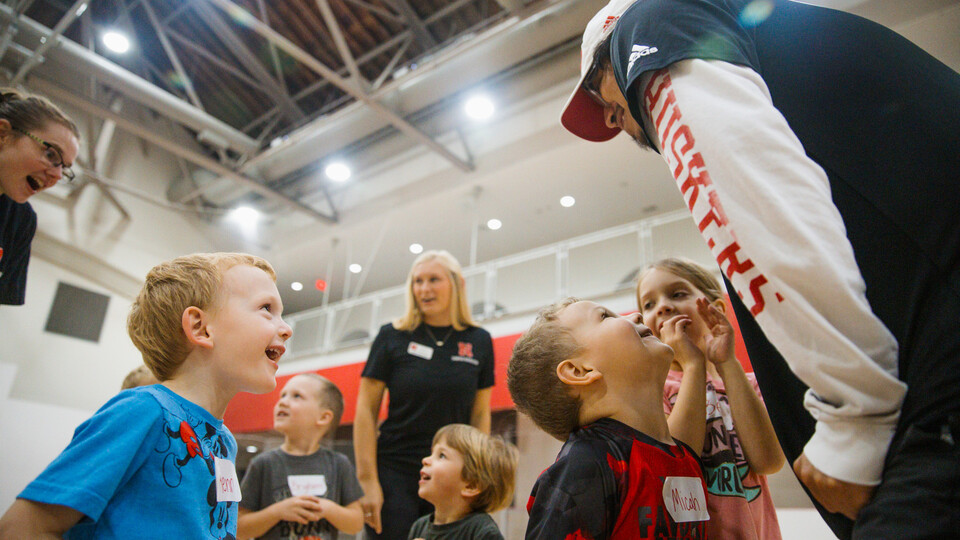
Any basketball career starts with the first basket, and a University of Nebraska–Lincoln Campus Recreation program is helping area youth make their first shot.
Itty Bitty Sports introduces young children to sports in a way that focuses on learning. By teaching kids how to develop athletic skills, it sets them up for the next stage of competition while giving them a shared experience with a loved one, said Hailey Klein, a coach for the program.
“We never play a full game of basketball, but they have the fundamentals of the sport,” said Klein, a graduate student in speech language pathology and staff assistant with Campus Recreation.
Itty Bitty Sports is a program for children ages 3 to 5. They must have at least one adult participating with them. Logan Kahler, sport programs coordinator at Campus Recreation, said the goal is to have an introductory space for the kids to learn and develop athletic skills.
“It’s a place for them work on those skills and build that confidence up so when they do step into organized sports, they have some tools in place to be ready to start that competition process,” Kahler said.
In each session, participants warm up with activities like jumping and running. During a sport-specific session like basketball, kids might move from dribbling to passing to shooting. The more general sports development sessions might include drills on kicking, throwing and catching. Kahler said focusing on learning means they’re learning about teamwork and communication and other social skills, as well as the sport.
“We want them to leave knowing how to properly shoot a basketball, but the process of how we get there is just as important,” he said.
Klein said coaches use language that is fun and relatable to children, like “Jump like a kangaroo” or “Crawl like a bear.” This kind of phrasing also offers parents an example for a way to speak to their children while they’re teaching. It helps the lessons stick by giving them something memorable and easy to understand, Klein said.
“Shooting might not stick but if you said, ‘We’re trying to make a basket,’ that is more in their vocabulary,” she said.
Kahler said the coaches, including current and former sport programs employees, are crucial in creating the learning environment for the kids. They greet each child and lead them through the class. He said the coaches, many who aspire to be teachers, speech language pathologists or otherwise work with children in their careers, set the tone for everyone involved.
“They’re bringing a positive energy and fostering a positive environment and the parents and participants feed off of them,” Kahler said.
Kahler said involving a parent or guardian creates an easier learning environment and can also foster the relationship between the child and the adult. Someone familiar is there to model the new skill for them and if the child gets frustrated, they can walk them through how to cope with that emotion.
“It’s a good way for them to learn through their parents,” Kahler said. “They’re already comfortable working with mom or dad or grandma or grandpa, whoever’s there with them.”
Klein said the time together can help the children bond with their parent or guardian. When parents are working full time and children are starting school, Itty Bitty Sports can carve out time to spend together doing an activity they both enjoy.
“It opens the door for, ‘This is our thing,’” Klein said.
Klein said the kids often try to help others who are having a harder time learning a skill. They see that another kid is trying and sometimes try to teach other, she said. They might not be playing on a team together, but they can still learn to help another kid while improving their own abilities. Klein said this shows the participants how to refine a skill.
“I would hope they understand we’re all learning this and it’s okay to fail at something as long as you keep trying,” she said.
Registration for the next session of Itty Bitty Sports, sports development, will open in December. The session begins on Jan. 30. Registration closes one week before the first session. More information is available on the Campus Recreation website.
